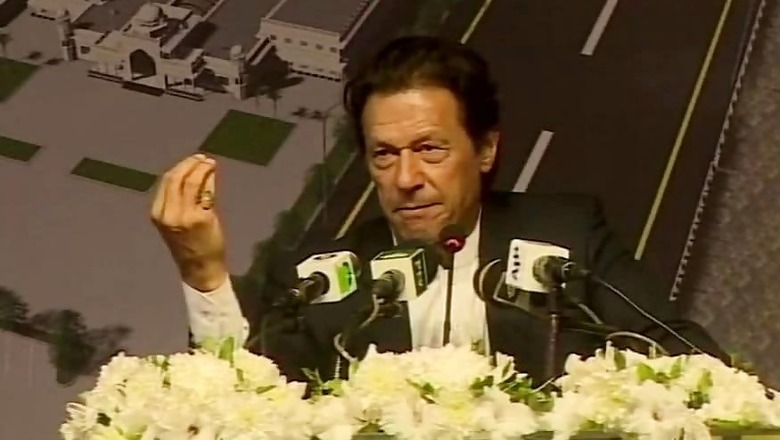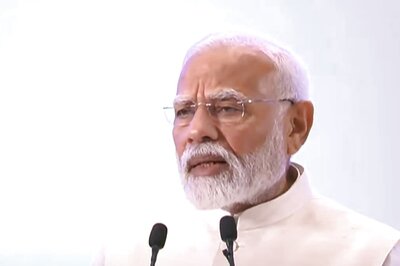
views
Islamabad: Prime Minister Imran Khan on Friday defended his Cabinet reshuffle and announced to make more changes, saying in order to win matches, a captain sometimes has to change the batting order.
The first Cabinet shake-up just after eight months in government saw the resignation of finance minister and Khan's confidante Asad Umar and changes in the portfolios of several ministers.
The changes were termed by the Opposition as a testimony of the failure of the government which, they alleged, could not control price rise.
Prime Minister Khan, addressing a gathering in Orakzai, said that he has changed the batting order and also brought in some new players.
"In order to win the match, a captain has to sometimes change the batting order and even introduce new players," he said, using cricket analogy.
"I have done the same and I will do again as the purpose is to win," he said.
Khan also warned the chief ministers of Punjab and Khyber-Pakhtunkhwa to improve after criticism at the performance of the Pakistan Tehreek-e-Insaf government in the two provinces.
Pakistan Muslim League-Nawaz spokeswoman Marryium Aurangzeb said that changes in the batting order would not help and demanded the removal of "captain".
"It is time that the captain should be changed instead of changing players," she said.
Meanwhile, confusion prevailed in the country over the fate of Umar as a notification issued by the government showed he was still the finance minister.
Minister for health services Amir Kiani was also listed as minister though he was removed on Thursday.
However, it was rectified in the evening and a notification was issued that Umar has resigned, while another notification showed that Abdul Hafeez Shaikh was appointed as the advisor to the prime minister on finance.
Shaikh has served as the Sindh provincial minister as well as minister in the government of former military ruler Pervez Musharraf. Later, he joined the Pakistan
Peoples Party and served as the finance minister from 2010 to 2013.
Shaikh, who holds a PhD in economics from Boston University, has worked at Harvard Institute of Development and also at the World Bank.
He brings over 30 years of experience under his belt in economic policymaking, management and implementation.




















Comments
0 comment